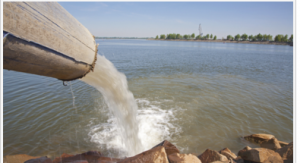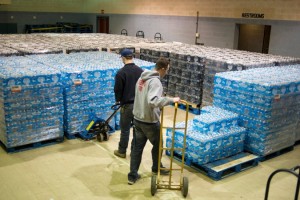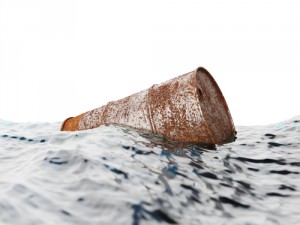 WASHINGTON — Federal drinking water rules are so relaxed that not even the city of Flint, Michigan, has been cited for a violation, even though many Flint residents have been relying on bottled water for drinking and cooking since last year.
WASHINGTON — Federal drinking water rules are so relaxed that not even the city of Flint, Michigan, has been cited for a violation, even though many Flint residents have been relying on bottled water for drinking and cooking since last year.
The Natural Resources Defense Council said Tuesday that 18 million Americans got water from systems that violated federal standards last year, according to federal data.
And the environmental advocacy group said an untold number of water systems break the rules without landing in the Environmental Protection Agency’s database of water regulation goofs — including Flint.
“Flint’s absence in the federal data system raises the question: If Flint’s extraordinary lead contamination problems are not included in the EPA’s official compliance data,” the NRDC’s report says, “how many other municipalities’ serious lead problems are being swept under the rug by officials responsible for protecting public health?”
An EPA spokeswoman noted it’s up to states to notify the agency of drinking water violations by municipal water systems.
“EPA recognizes there are ongoing challenges in compliance with the Lead and Copper Rule and is working closely with states, who under the Safe Drinking Water Act are the first line of oversight of drinking water systems and take the majority of enforcement actions,” the spokeswoman said in an email. The Lead and Copper Rule is the main federal regulation for limiting lead levels in public drinking water. Read More

 Have you ever wondered if the water in your house is safe to drink? While many have been angered by the news that children in Flint, Michigan were exposed to abnormally high amounts of lead in their drinking water, clean water is actually a problem for millions of Americans.
Have you ever wondered if the water in your house is safe to drink? While many have been angered by the news that children in Flint, Michigan were exposed to abnormally high amounts of lead in their drinking water, clean water is actually a problem for millions of Americans.
 New York State residents have long enjoyed high quality, affordable potable water; the result of the State’s protected source waters and reservoirs, and robust testing and filtration programs. In fact, most New Yorkers have taken the quality of their potable water for granted. But in recent weeks two upstate New York towns – Hoosick Falls and Petersburg – have detected elevated levels of perfluorooctanoic acid (PFOA) in their drinking water supplies, leading state and federal authorities to warn residents against using tap water for human consumption.
New York State residents have long enjoyed high quality, affordable potable water; the result of the State’s protected source waters and reservoirs, and robust testing and filtration programs. In fact, most New Yorkers have taken the quality of their potable water for granted. But in recent weeks two upstate New York towns – Hoosick Falls and Petersburg – have detected elevated levels of perfluorooctanoic acid (PFOA) in their drinking water supplies, leading state and federal authorities to warn residents against using tap water for human consumption. In
In  Just months before Rob Bilott made partner at Taft Stettinius & Hollister, he received a call on his direct line from a cattle farmer. The farmer, Wilbur Tennant of Parkersburg, W.Va., said that his cows were dying left and right. He believed that the DuPont chemical company, which until recently operated a site in Parkersburg that is more than 35 times the size of the Pentagon, was responsible. Tennant had tried to seek help locally, he said, but DuPont just about owned the entire town. He had been spurned not only by Parkersburg’s lawyers but also by its politicians, journalists, doctors and veterinarians. The farmer was angry and spoke in a heavy Appalachian accent. Bilott struggled to make sense of everything he was saying. He might have hung up had Tennant not blurted out the name of Bilott’s grandmother, Alma Holland White.
Just months before Rob Bilott made partner at Taft Stettinius & Hollister, he received a call on his direct line from a cattle farmer. The farmer, Wilbur Tennant of Parkersburg, W.Va., said that his cows were dying left and right. He believed that the DuPont chemical company, which until recently operated a site in Parkersburg that is more than 35 times the size of the Pentagon, was responsible. Tennant had tried to seek help locally, he said, but DuPont just about owned the entire town. He had been spurned not only by Parkersburg’s lawyers but also by its politicians, journalists, doctors and veterinarians. The farmer was angry and spoke in a heavy Appalachian accent. Bilott struggled to make sense of everything he was saying. He might have hung up had Tennant not blurted out the name of Bilott’s grandmother, Alma Holland White.
